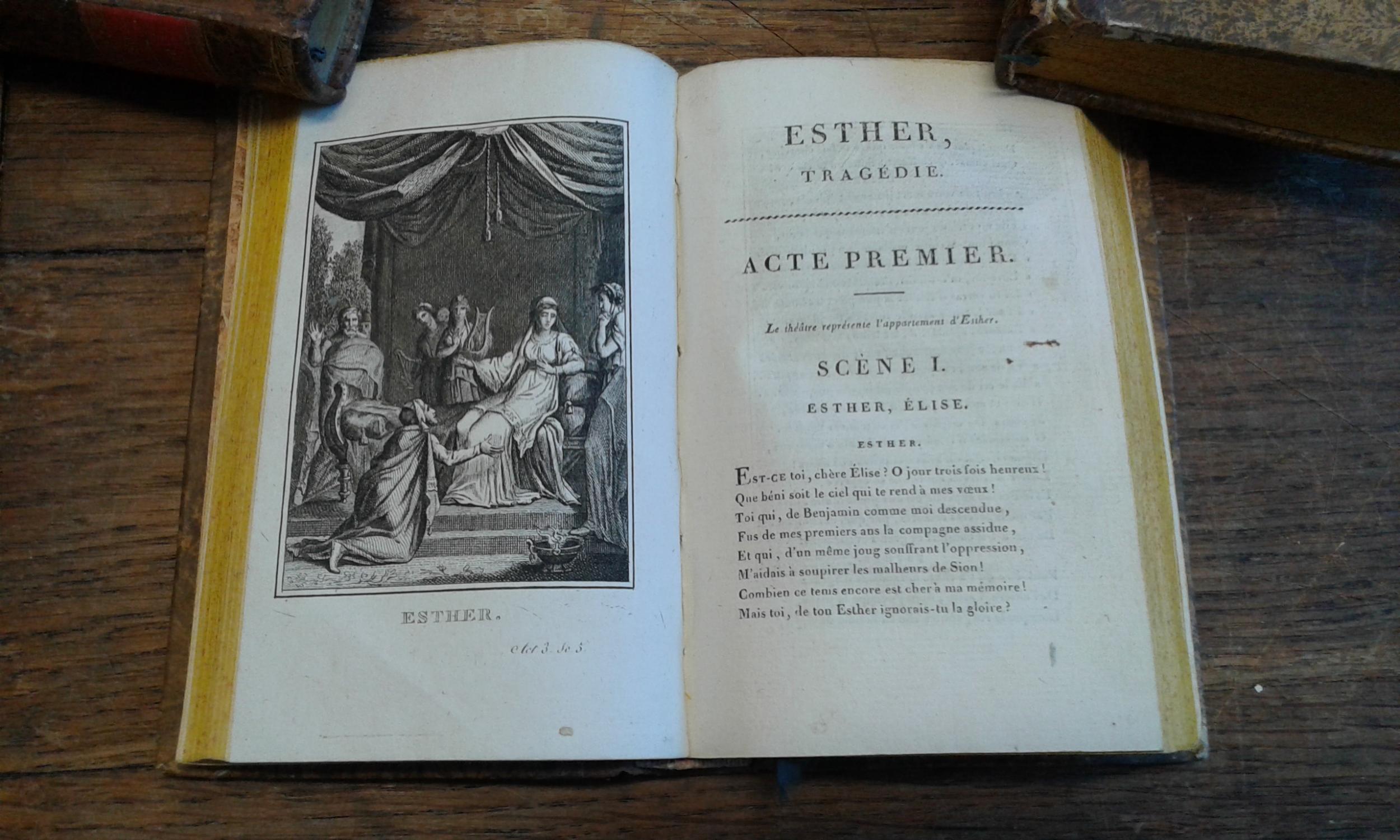

Interactions of Racine with the Jansenists in his years at this academy great influenced the rest of his life. The French bishops and the pope condemned Jansenism, a heretical theology, but its followers ran Port-Royal. He received a classical education at the Petites écoles de Port-Royal, a religious institution that greatly influenced other contemporary figures, including Blaise Pascal. At the death of his grandfather in 1649, his grandmother, Marie des Moulins, went to live in the convent of Port-Royal and took her grandson Jean-Baptiste. Orphaned by the age of four years when his mother died in 1641 and his father died in 1643, he came into the care of his grandparents. Although primarily a tragedian, Racine wrote one comedy. Psychological insight, the prevailing passion of characters, and the nakedness of both plot and stage mark dramaturgy of Racine. This dramatist ranks alongside Molière (Jean Baptiste Poquelin) and Pierre Corneille of the "big three" of 17th century and of the most important literary figures in the western tradition. Alan Hollinghurst's translation of "Berenice" premiered at the Donmar Warehouse, London, in October 2012 and "Bajazet", at the Almeida Theatre, London, in November 1990.Ĭlassical Greek and Roman themes base noted tragedies, such as Britannicus (1669) and Phèdre (1677), of French playwright Jean Baptiste Racine. Violent too are the repeated reversals of fortune, and the terrifying acceleration of the play towards its inexorable catastrophe. "Bajazet" is Racine's most violent drama it ends, like "Phedre", with a female character's on-stage suicide, here the culmination of a vividly described sequence of off-stage murders.The setting, in a claustrophobic space within the harem at Constantinople, menaced from both without and within, seems to license a violence of emotion as well as of deed.

The effect is unconventional, and profound: the pained acceptance of the irreconcilable in human affairs, and the surrender, by each of the main characters, of the person they most love.

Many tears are shed, but not a drop of blood. The play pushes all three of its principals to the brink, not of revenge but of self-murder, before in her sublime last speech Berenice redeems and directs them all in an act of collective abnegation. The breaking off of a great love affair involves too the hopes of Antiochus, himself long in love with Berenice.

Thereafter Titus knows that his separation from Berenice is inevitable. The critical event in "Berenice", the death of Titus' father, the Emperor Vespasian, happens a week before the play opens. This volume brings together two translations by Alan Hollinghurst of Racine's most strongly contrasted tragedies, "Berenice and Bajazet".


 0 kommentar(er)
0 kommentar(er)
